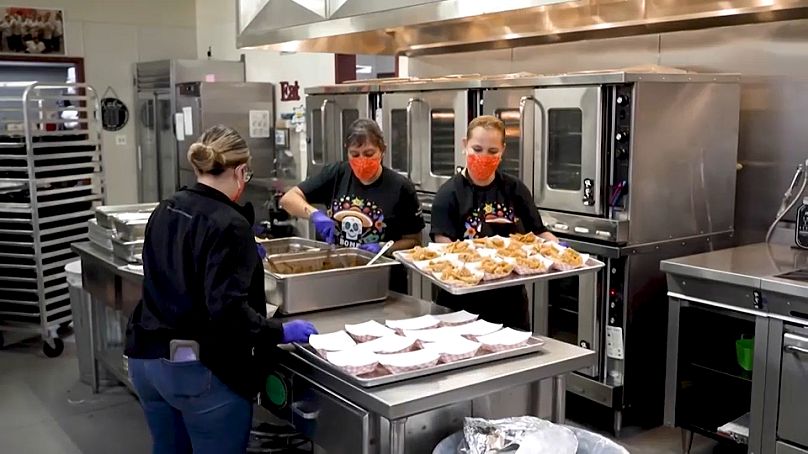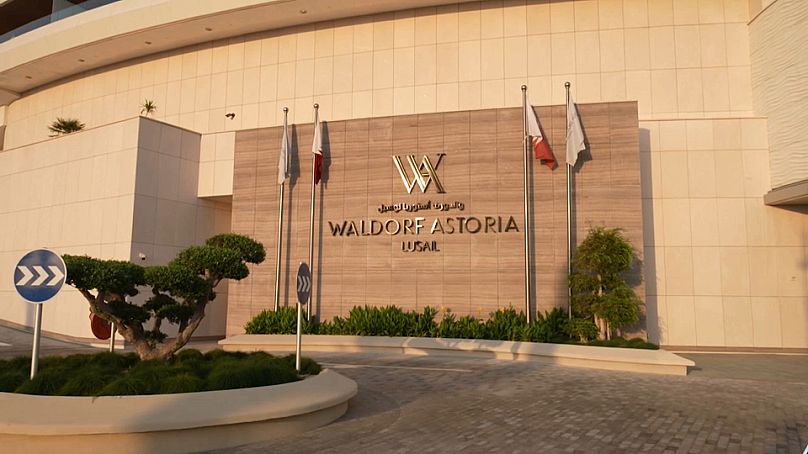As pressure from the UN and EU to achieve net zero increases, many hospitality firms are developing some radical sustainability programmes
As demand for more sustainable food grows and governments and international organisations increasingly urge us to change our diet to help the planet, there is also a focus on big businesses which consume much more resources than individual people.
 ADVERTISEMENT
ADVERTISEMENT
 ADVERTISEMENT
ADVERTISEMENT
The United Nations has outlined some key sustainability targets which include calls for a world free from hunger by 2030. The goal challenges companies to play their part in helping 2.4 billion people still struggling for regular access to adequate food.
It is estimated 17 per cent of total food available to consumers is wasted; equivalent to 931 million metric tons of potential meals. The UN is asking citizens, companies and governments to work together on reducing waste and shaping a new more circular economy.
More urgent action is also being demanded because national carbon emission commitments are currently not sufficient to limit warming and create a net zero world by 2050.
Changes shopping habits
The stark warnings from the United Nations are supported by experts including celebrity chef and United Nations Advocate on Food Waste Leyla Fathalla.
Fathalla says change must start at the shopping phase.
"When we go to shop for our recipes we should plan our week ahead," she says. "We go to buy our ingredients according to the list of the recipes we will be cooking this week. So, we won’t buy any items that will go to waste by the end of the week.
"We have to calculate, just like in maths, what is the consumption of our family and cook accordingly.
"If we have more food than we can give to other people. Let’s cook or use the things we have in our cupboard and in our kitchen before anything else. That is how we get less food waste."
The Waldorf Astoria, Lusail in Qatar, is one international hotel which adops a food sustainability strategy.
Sustainable Ramadan
Emma Banks is a vice-president of food and beverage strategy there and is a visonary, changing the way people consume food and drink when we travel.
"Studies show, during Ramadan and indeed during other celebrations and festivities, food waste can increase by about 25 to 50 percent. So, it’s quite a serious concern," explains Banks.
"We wanted to look at how we could make our Ramadan more sustainable, so we pitched the idea and we now, in the hotels,they have put the recipe of change sustainability messaging on the Iftar and Sehri offerings. Just to make guests guests think about food waste.
"We’ve partnered with local farms to use as much local and plant produce as possible, which is again more carbon friendly as we are minimising food miles.
"We are also looking at as much plastic reduction as possible. We’ve partnered with Winnow and used their AI technology to track and trace waste and to give us an insight into how to minimize food waste in the future."
The tech firm, Winnow Solutions, uses AI to ensure commercial kitchens are more sustainable. David Jackson is their marketing director.
"At Winnow we develop artificial intelligence tools to help chefs have a more profitable and sustainable kitchen but cutting food waste in half," Jackson says.
"The field of AI we work in is computer vision, so we are teaching the machine to see and recognise the food that is being thrown away in our kitchens. We work with thousands of chefs in sixty-seven countries.
"We are delighted to partner with Hilton as part of the Green Ramadan campaign, where our data is helping teams to pinpoint exactly where food is being wasted and then giving them the insights to drive change.
"They are able to identify specific items, specific areas of their buffets to introduce behavior science led nudges which will help reduce food waste whilst also increasing customer satisfaction.
Aiming for a hunger-free world
The EU green week takes place at the end of June, giving Europe an opportunity to celebrate the progress made and to encourage individuals, communities and organisations to take stronger action in future – to protect, preserve and restore our environment.
Adalbert Janhz the EU environmental spokesperson and explained why green week is important in the effort to become more sustainable.
"The EU green week is something we have been organising for around 20 years now and the point of it is to bring together the environmental community of policy makers and decision makers from all of Europe to Brussels for a big conference to discuss how we move ahead with environmental policy in general.
"So, it’s a really important moment in terms of collective thinking and advancing on the road to sustainability.
"The EU green deal is the first priority of this European commission and for good reason. It is because we really have a small window of opportunity – right now, to get to a more sustainable world that will really put our prosperity on a more solid footing without destroying nature and our climate."
With the UN aiming for a world free from hunger by 2030, all companies are being called on to play their part. But close to a billion metric tons of perfectly good food is still being wasted each year.
Finding ways to feed the 2.4 billion people still struggling for adequate meals is going to take some major changes to how the world does business.













